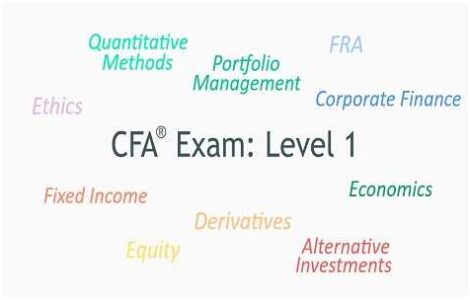Here are some jobs that a CFA qualified professional can take up:
• Portfolio Manager: Under this profile, a person makes investment decisions relating to the money of other people who have given the control of that money in the manager’s hand or a person who is in charge of a firm’s asset and liability (loan and deposit) portfolios. CFA focuses on training you to become a portfolio manager so this job is a complimentary job given by the CFA Institute.
• Risk Manager: A person who predicts as well as manages the risks that a firm faces or might face in the future. How to cope up and avoid such risks, analysing its effects is the work of a risk analyst. The CFA course with its widespread content on managing risk coaches you well enough to become coherent Risk manager.
• Chief Executive: This profile will make you the highest and the senior most corporate officer who is in charge of managing a profit organisation. You will be in charge of maximising the value of entity. He behaves as a decision maker, a leader, a manager and an executor. CFA helps you acquire leadership and managerial qualities along with firm decision making traits.
• Research Analyst: Also known as a financial analyst, securities analyst, rating analyst, investment analyst or equity analyst is a person whose job is to analyse the financial records of a firm for its clients. He is to give reports and notes to its clients after analysing all that the client would want to know. CFA prepares you to analyse and derive the information about a firm in such an efficient way that you don’t miss out on anything.
• Financial Advisor: A person who provides advice and guidance to firms or individuals on investment and making finance related decisions. They help them make the right decisions and direct them to a higher profit making area. The CFA course helps you analyse the best out of a situation which helps the CFA candidates to make accurate and the best decisions. They are well prepared to make the best of a scenario.
• Consultant: A consultant is a person who provides professional advice and suggestions that will benefit a firm. They can be internal, functioning within a company or external providing advice and help outside a company. The CFA course covers corporate finance and alternative investments which helps you make correct decisions and advice people according to their requirements and background.
• Accountant/Auditor: An accountant or auditor keeps tracks of all the financial incomes and outcomes of a business. It sees to it that no entry has been omitted or entered incorrectly. The CFA course focuses on financial reporting and analysis which automatically trains us to become an accountant, with ease.
• Investment Banking Analyst: A person who analyses and contemplates all the possibilities of an investment. He directs the investment process and makes individuals and firms aware of mergers and accusations. The CFA course has a section of equity investments, corporate investments, fixed incomes and economics which directly grooms you for this job with ease.
• Corporate Financial Analyst: A person who follows and analyses an assigned company’s financial workings – going over financial statements, expenses, tax rates, and the like – in order to develop an understanding of where the company makes and where the company loses money. The CFA course aims at making you an efficient financial analyst and that is what you become and if you hold a CFA certification, no power in the world can deprive you of a financial analyst’s designation.




